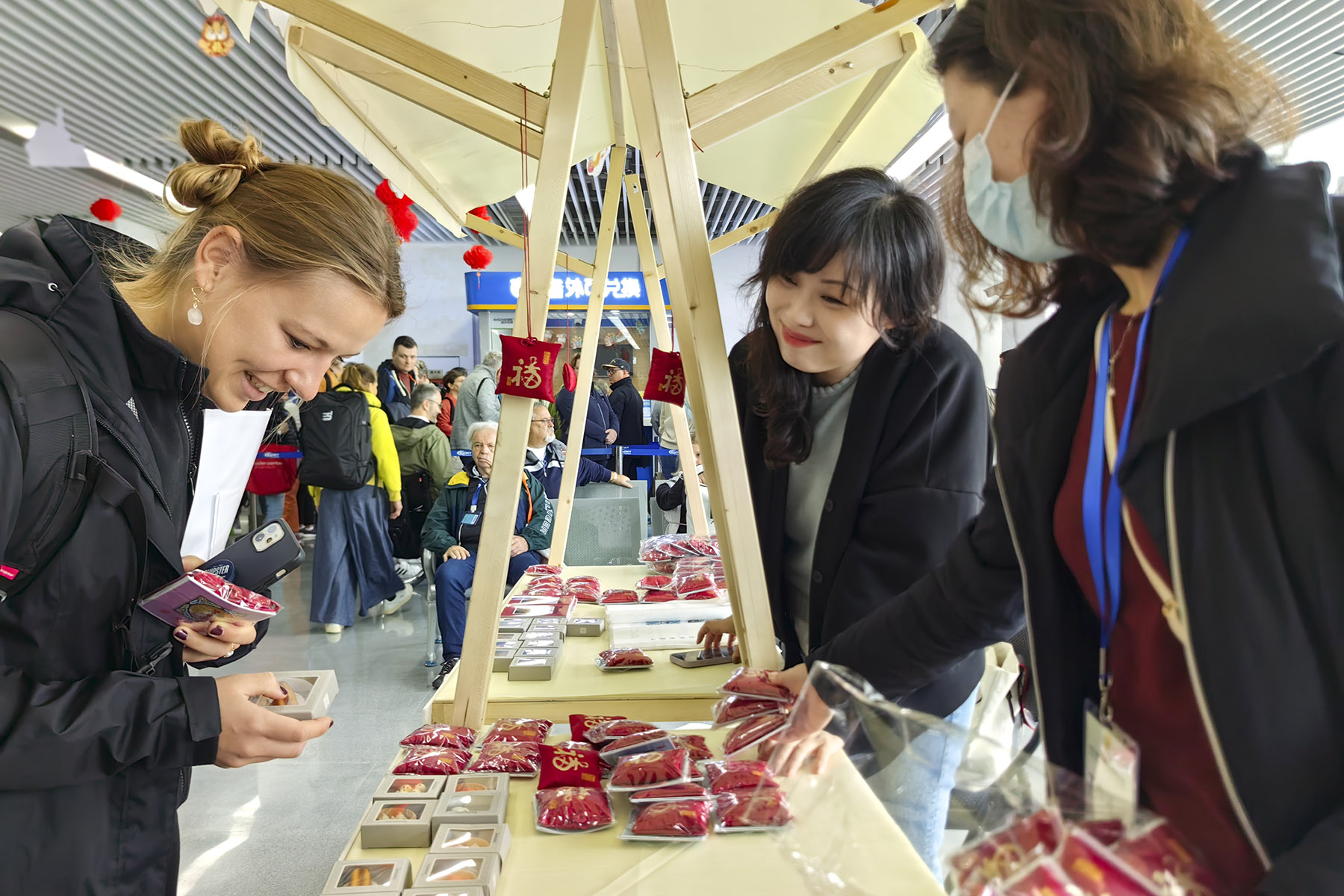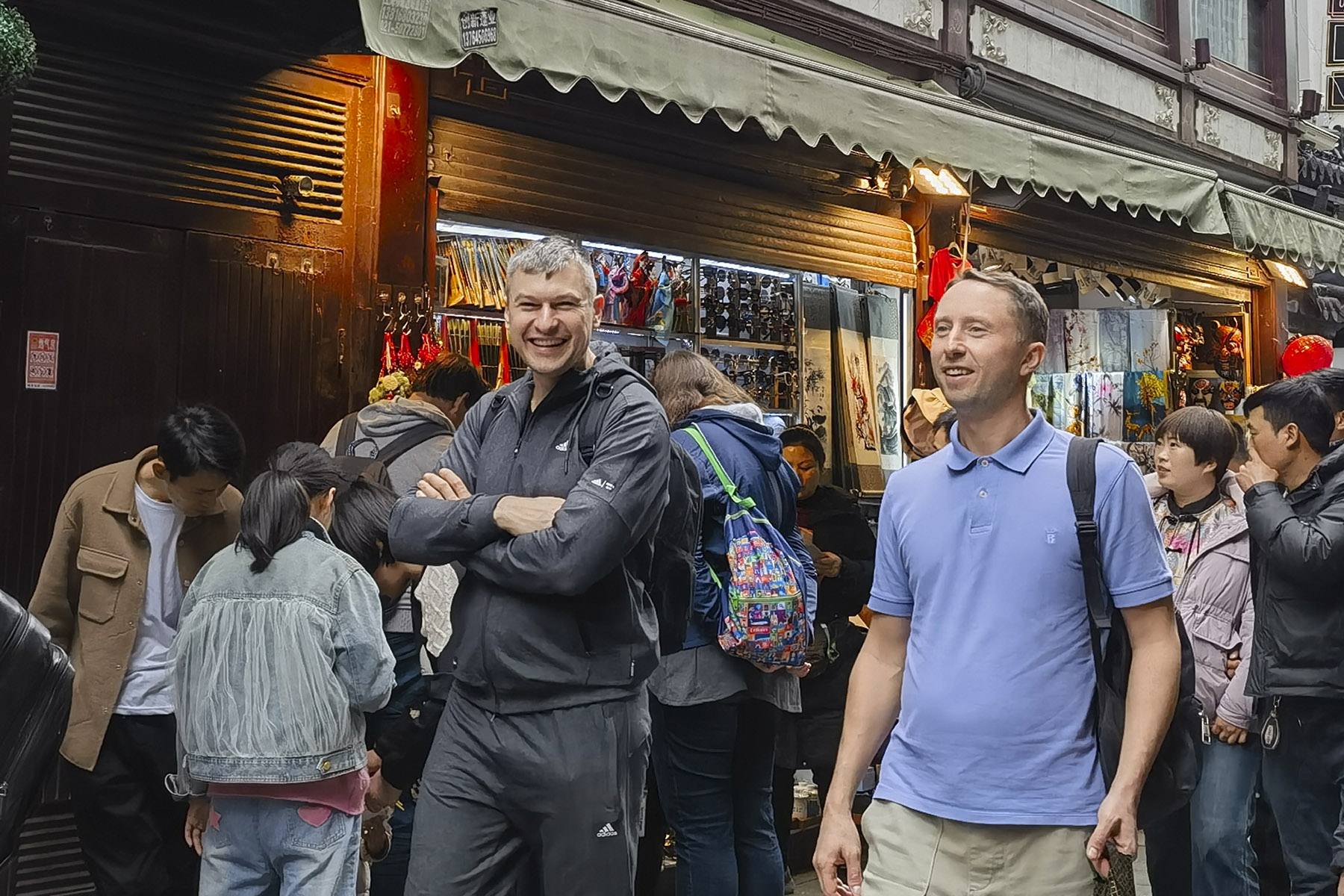Policy spurs exchanges as China shows commitment to making it easier for expatriates to live and work in country

Spanish businessman Jesus Perez Aguilar arrived in Guangzhou, Guangdong province, in late January for an 11-day business trip that also took him to Guangdong’s Shenzhen and Changsha, Hunan province.
Aguilar’s frequent trips to China have been propelled by a 2018 agreement signed during President Xi Jinping’s visit to Spain, which allowed the European country to export bone-in ham to China.
Over the years, Aguilar has become a familiar face in China promoting Iberian ham. In 2023 alone, he visited China four times, staying more than 90 days in the country.
The January trip, however, stood out due to a new and convenient measure: a unilateral 15-day visa-free entry policy granted to ordinary passport holders from several European countries — including Spain — and Malaysia. This policy, on a trial basis and initially set to expire at the end of this year, has been extended to the end of 2025. It now applies to 14 countries, with Australia and New Zealand recently included.
“These small conveniences help a lot in promoting commercial exchanges between countries,” said Aguilar, who works for the Interprofessional Iberian Pork Association, which is based in Zafra, southern Spain.
In a written speech delivered at last November’s Asia-Pacific Economic Cooperation CEO Summit in San Francisco, the United States, Xi reiterated Beijing’s commitment to making it easier for foreign expatriates to live and work in China.
“We will also take more ‘heartwarming’ measures, such as improving the policies on entry and stay of foreign nationals in China and removing for them choke points in financial, medical, e-payment and other services,” he told the global business community.

During the Central Economic Work Conference last December, China’s top leadership decided to remove more barriers to facilitate business, study, and travel in China for foreigners. Since then, both central and local governments have introduced a series of measures to meet the diverse needs of foreign visitors and expatriates.
As China has pursued a more proactive strategy of opening-up since the 18th National Congress of the Communist Party of China in 2012, observers said these measures exemplify China’s efforts to advance a broader agenda of opening-up across more areas and in greater depth.
Matteo Giovannini, an Italian who has lived in China for nearly 11 years and has witnessed such efforts, highly rated the quality of life in China, considering aspects such as affordability, safety, and cultural richness.
Giovannini said the digitalization of government services is one aspect he has found particularly beneficial for foreigners. “It has made it easier for residents to access public services, pay bills, and complete administrative tasks online.”
He said that initially, it was challenging for him to adapt to life in China as English was not widely used on public transportation and in restaurants when he arrived in 2013 in Dalian, Liaoning province.
It would be better if the availability of translation and interpretation services, especially in critical areas such as healthcare, legal services, and government offices can be further increased, he said.
Now being deeply immersed in China’s culture and traditions and the Chinese language, Giovannini said he does not see himself living somewhere else in the foreseeable future. He was granted permanent residence status in 2022.
“The fact that China enjoys political stability with a predictable living environment is something that cannot be underestimated nowadays,” he added.

Wang Ying, a researcher at the Beijing-based University of International Business and Economics’ Academy of China Open Economy Studies, said that through the facilitation measures, the Chinese government is showing a welcoming attitude toward foreign visitors as well as expatriates in China.
“We can see that the adopted measures are targeted at existing bottlenecks and obstacles, with the purpose of creating a better environment for them to work and live in China in the long run,” she said.
As convenience improves, more and more foreigners, including businesspeople, will be willing to come to travel, work and live in China. “This will help boost economic, trade, as well as cultural exchanges between China and other countries, thus deepening cooperation and mutual understanding,” Wang said.
Aguilar, the Spaniard, said he has full confidence in the Chinese economy and will deepen his involvement in the Chinese market with a planned visit in September.
He said that in the past five years, sales of Spanish cured ham to China increased by more than 104 percent, with an annual growth of 28.5 million euros ($30.52 million). Now China has become Spain’s second-largest destination for such products outside the European Union.
“China is a very large country with so many cities of interest to visit and work in,” he said, adding that he hopes the 15-day period of the visa-free policy could be extended by a few more days to facilitate his stay in China.
Wang, the UIBE researcher, said, “Efforts to improve the quality of life for foreign citizens in China will also help to establish an objective understanding of China and enhance their sense of belonging toward China by showcasing the openness, inclusiveness, and friendliness of China as a major country.”
For many foreign visitors who have never been to China before, an in-person visit will enable them to get a true picture of how the country looks today after decades of reform and opening-up, Wang said.

In the first quarter of this year, foreign nationals made four times more trips in and out of China, data from the National Immigration Administration showed. During this period, the administration issued around 466,000 visa documents for foreign nationals and granted over 1.98 million foreign travelers visa-free entry, up 118.8 percent and 266.1 percent, respectively.
Videos shared by foreign tourists on platforms such YouTube and TikTok about their firsthand travel experiences in China have been going viral recently.
In a video titled “Shocked by this crazy city in China”, which received 545,000 views, YouTube users “JetLag Warriors” experienced the transportation and accommodations services, tasted local food, and visited tourist attractions in Chongqing.
The six-day visit earlier this year was enabled by a 144-hour visa-free transit policy implemented by China that has been granted to travelers from 54 countries.
In a comment under the video, a viewer with the username “dr_emmz” said: “I can’t believe you guys made me smile the whole day. … China is the best country, lots of places to explore, lots of food, lots of cultures, it’s almost unreal, and this is not what the media shows us, I’m actually coming to China for my vacation this year, so excited.”
Miao Lu, secretary-general of the Center for China and Globalization, a Beijing-based think tank, said that with efforts to facilitate cross-border travel and high-standard opening-up, China is leading globalization against a rising trend of anti-globalization and implementing the Global Development Initiative and other major initiatives proposed by China.
“The convenient measures may appear to be small changes but in reality, for a country as large as China, there were huge efforts behind every improvement. For instance, it is by no means an easy task to unilaterally grant visa-free access to an entire country,” she said.
“By doing so, China is telling the rest of the world that its commitment to expanding opening-up is not just lip service,” Miao added.
Contact the writers at mojingxi@chinadaily.com.cn


